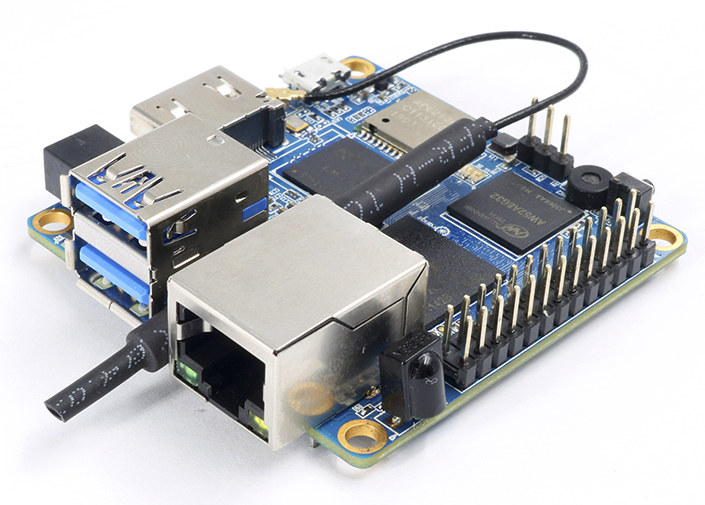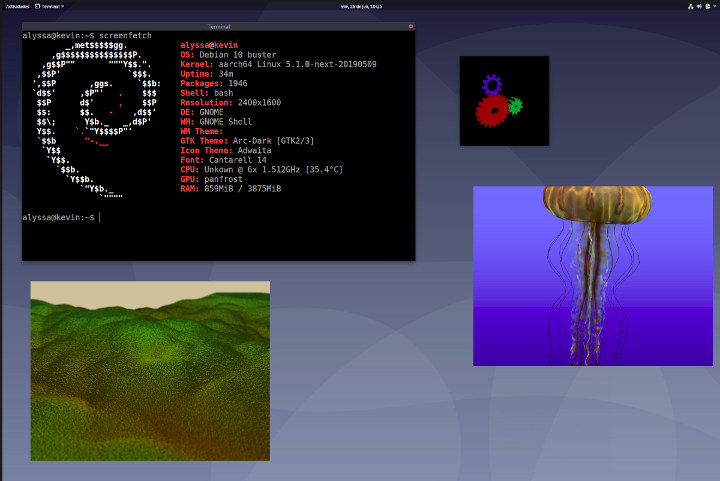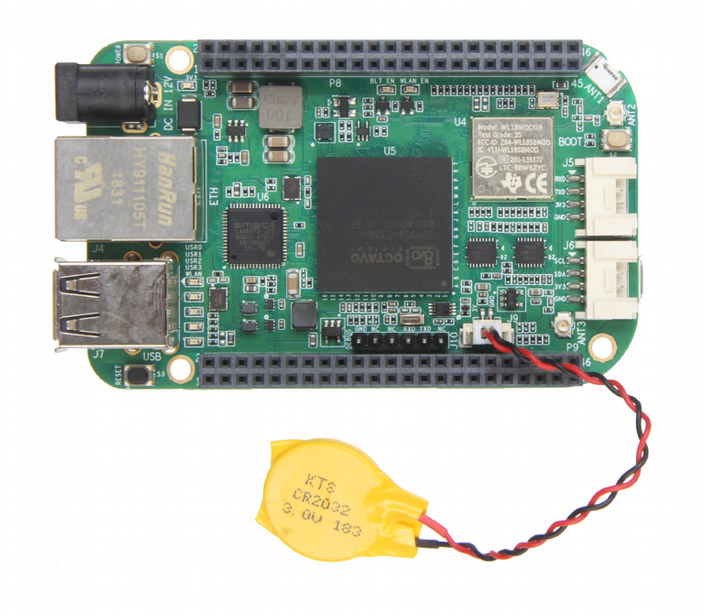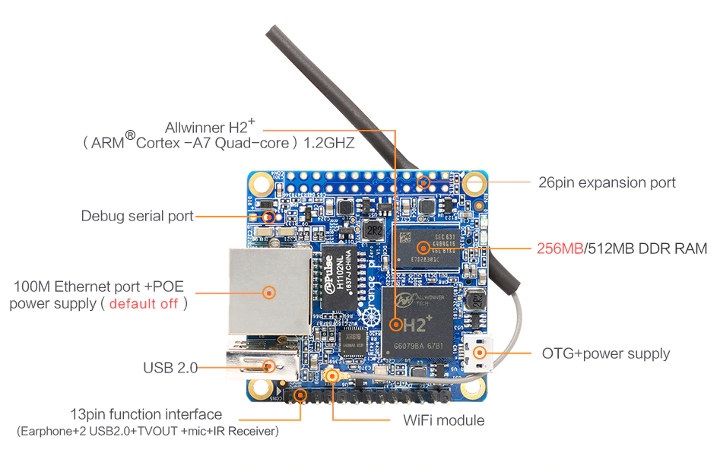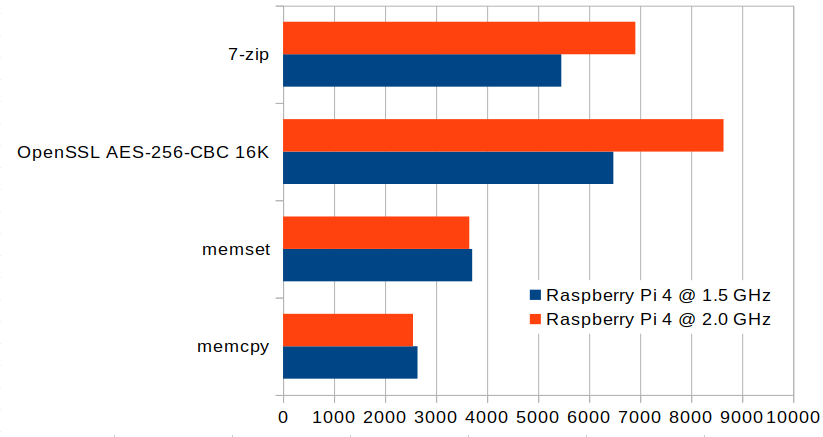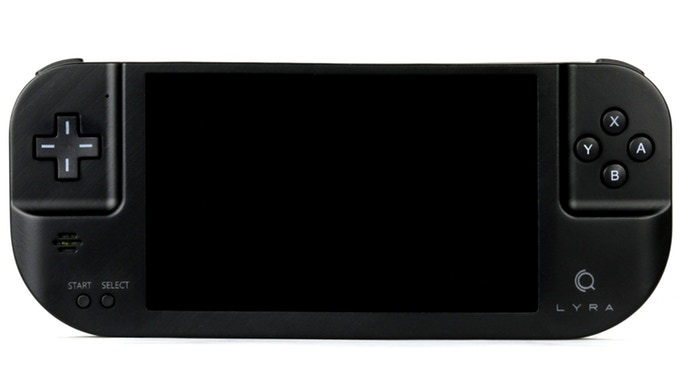I may have just written about Linaro Connect San Diego 2019 schedule, but there’s another interesting event that will also take place this fall: the Embedded Linux Conference Europe on October 28 -30, 2019 in Lyon, France. The full schedule was also published by the Linux Foundation a few days ago, so I’ll create a virtual schedule to see what interesting topics will be addressed during the 3-day event. Monday, October 28 11:30 – 12:05 – Debian and Yocto Project-Based Long-Term Maintenance Approaches for Embedded Products by Kazuhiro Hayashi, Toshiba & Jan Kiszka, Siemens AG In industrial products, 10+ years maintenance is required, including security fixes, reproducible builds, and continuous system updates. Selecting appropriate base systems and tools is necessary for efficient product development. Debian has been applied to industrial products because of its stability, long-term supports, and powerful tools for packages development. The CIP Project, which provides scalable and […]
Orange Pi Zero2 is a Tiny Allwinner H6 SBC with HDMI 2.0, USB 3.0, Ethernet & WiFi
Shenzhen Xunlong Software launched a refresh of their Orange Pi Zero board, namely Orange Pi Zero LTS, a couple of weeks ago. The company is now about to launch another SBC of the “Zero” family. Slightly larger than its predecessor, Orange Pi Zero2 is also quite more powerful with an Allwinner H6 quad core Cortex-A53 processor, and more versatile thanks to the addition of a USB 3.0 port, HDMI 2.0 video output, and a built-in microphone. Orange Pi Zero2 specifications: SoC – Allwinner H6 quad-core Arm Cortex-A53 processor with Arm Mali T720 GPU with support for OpenGL ES3.1/3.0/2.0/1.1, Microsoft DirectX 11 FL9_3 Memory – 512MB LPDDR3 (Allwinner AW52A8G32) Storage – 4GB eMMC Flash and microSD card up to 32GB Video Output – HDMI 2.0a port Video Decoding – 10-bit H265/HEVC up tp 4K60 or 6K30; H264/AVC up to 4K30; VP9 up to 4K30; AVS+/AVS up to 1080p60 Network Connectivity 802.11 […]
Rock Pi 4 SBC Runs GNOME & KDE Plasma using Panfrost Open Source GPU Driver & Wayland
One of the highlights of Linux 5.2 release was support for two new Arm Mali GPU open-source drivers, namely Lima for Mali-4xx GPU, and Panfrost for the Midgard Mali-T6xx/7xx/8xx series, and the more recent Bifrost Mali-Gxx GPUs. Collabora worked on the release and was donated a few Rock Pi 4 boards from Radxa directly to work on the project. For those who are not familiar, Rock Pi 4 board is powered by a Rockchip RK3399 processor with a Mali-T860MP4 GPU that is supported by Panfrost open source GPU driver. The company managed to have Debian 10 Buster running on Rock Pi 4 using 3D graphics acceleration thanks to Panfrost drivers on both GNOME and KDE Plasma desktop environment, as well as Weston Wayland compositer. The good news is that you can build Rock Pi 4 images by yourself using Debos with the following commands:
|
1 2 3 |
git clone https://gitlab.collabora.com/rockpi/rockpi4 cd rockpi4 docker run --rm --interactive --tty --device /dev/kvm --workdir /recipes --mount "type=bind,source=$(pwd),destination=/recipes" --security-opt label=disable godebos/debos --scratchsize=8G rockpi4.yml |
Alternatively, you could directly download […]
Actcast Combines IFTTT-like Service with AI and Raspberry Pi 3 / Zero
In a report on April 30, 2017, Idein had developed GPGPU accelerated object recognition for the Raspberry Pi platform. That development led to the beta release of the ActCast IoT platform, which was announced on July 29, 2019, and uses deep learning algorithms for object and subject recognition. The program is for use with IoT and AI. The idea is to increase performance and link the system to the web for even more solutions. What it Does The use of physical world information in IoT projects has many applications. Such as a doorbell that sees a person, can then recognize the person. Ultimately letting the user know over the web through a smartphone, the person should be let in. And then the system unlocks the door. So Actcast is a bit like IFTTT with artificial intelligence / computer vision capabilities. Edge Computing Bringing the source of data closer to the […]
BeagleBone Green Gateway SBC Adds Octavo OSD3358 SiP, Ethernet, and a DC Jack
BeagleBone Green Wireless was launched in 2016 as an alternative to the official BeagleBone Green with WiFi & Bluetooth connectivity, and some extra USB ports meaning the Ethernet port had to go. The Linux SBC was based on Texas Instruments Sitara AM3358 processor and a 512 MB RAM chip. Seeed Studio has been working on an update of the board named BeagleBone Green Gateway that combines the processor, the RAM chip, and more components into one thanks to Octavo Systems OSD3358 SiP. The new board also adds Ethernet, a DC jack for power instead of just relying on micro USB, and an I2C RTC chip and battery. BeagleBone Green Gateway specifications with changes highlighted in bold: SiP – Octavo Systems OSD3358 with Texas Instruments AM3358 Arm Cortex-A8 processor @ 1.0 GHz, 2×32-bit 200-MHz programmable real-time units (PRUs), 3D graphics accelerator, 512MB DDR3 SDRAM, 4KB EEPROM, and integrated power management Storage […]
Orange Pi Zero LTS SBC Launched for $8.49 and Up
Orange Pi Zero LTS is an update to Orange Pi Zero Allwinner H2+ board with the same specifications, but tweaks to the hardware that Shenzhen Xunlong Software claims lower power consumption and reduce heat. The SBC supports Armbian’s Debian and Ubuntu images, and best suited for headless applications that require network connectivity via Ethernet and/or WiFi such as smart speakers. The board also features one USB port, and two I/O headers for expansion. The good news is that you can now buy Orange Pi Zero LTS for the same price as the original model, namely $8.49 for the 256MB RAM version, and $10.49 for the 512MB model$10.49 for the 512MB model, excluding shipping costs ($4.73 to my location). Here’s a reminder of Orange Pi Zero LTS (v1.5) specifications: SoC – Allwinner H2+ quad-core Cortex A7 processor @ 1.2 GHz with Mali-400MP2 GPU @ 600 MHz System Memory – 256 to […]
How to Overclock Raspberry Pi 4 to 2.0 GHz
Yesterday I played with my new “ICE Tower CPU cooling fan” for Raspberry Pi 4 which cools the board just great but is clearly over the top. Regular reader and commenter m][sko mentioned it was possible to overclock Raspberry Pi 4 to 2.0 GHz after a firmware upgrade. That looks like a perfect task for my new fansink! I’ve upgraded both the firmware and operating system:
|
1 2 |
sudo rpi-update sudo apt dist-upgrade |
then edited /boot/config.txt as root (sudo) to add the following lines to boost the maximum frequency to 2.0 GHz:
|
1 2 3 |
force_turbo=0 arm_freq=2000 over_voltage=6 |
Do not try to set force_turbo=1, as while it would allow to further boost the voltage, it will change a fuse in the chip, and it will void your warranty. We can now reboot the board to validate the settings, and check those are applied:
|
1 2 3 |
vcgencmd get_config int | grep "arm\|over" arm_freq=2000 over_voltage=6 |
Good. At idle the frequency is lower, but that normal:
|
1 2 |
vcgencmd measure_clock arm frequency(48)=666826176 |
Voltage is set to 1.0335V:
|
1 2 |
vcgencmd measure_volts volt=1.0335V |
[…]
LyRa is a Raspberry Pi CM3L based Handheld Game Console (Crowdfunding)
The LyRa handheld game console is the first of its kind to carry a Raspberry Pi CM3L module inside. We reported on the Raspberry Pi Compute Module 3 Light in early 2017, and its significant features and abilities. The LyRa is being developed by Creoqode who started their campaign on Kickstarter in July 2019. The campaign has already surpassed its funding goal, and it looks like the LyRa will become a reality. The LyRa comes in two versions 1. RTG – Ready-To-Go which is a completely assembled and ready to play handheld game console, computer and entertainment console. 2. DIY – Do-It-Yourself version comes in pieces that can be made into a fully functioning handheld game console in about 15 minutes. The unit features a Raspberry Pi CM3L module which is able to emulate literally hundreds of classic game consoles and games. The unit can attach through HDMI to a […]



